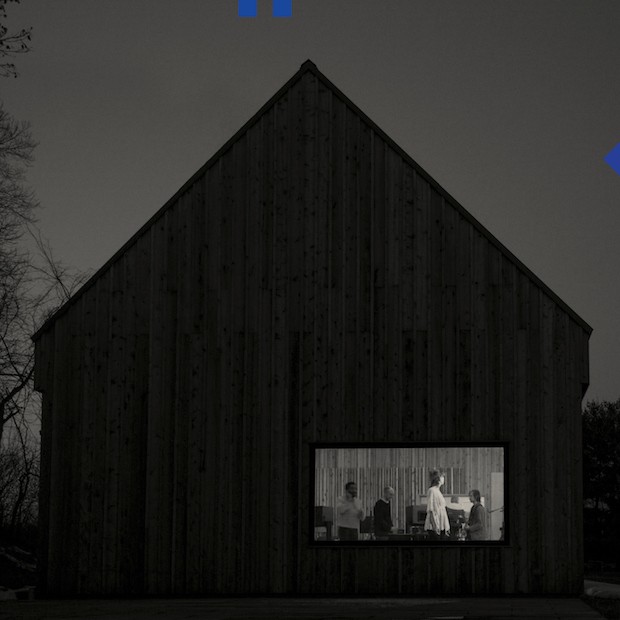In 2015, seemingly out of nowhere, a nineteen year-old Memphis post-punker by the name of Julien Baker released Sprained Ankle, a collection of songs written with startling awareness and humility that, for the most part, remains absent in much of her peers. Naturally, the blogosphere erupted with adoration - here was a promising young artist that had depth, sustainability, and seemingly little interest in the post-Internet social media sphere - and thus began the meteoric rise of Julien Baker’s (totally deserved) legacy.
It’s almost amusing to consider that throughout the two years that followed Sprained Ankle’s release, someone as private as Baker would quickly become one of the most sought after entities in independent music. If Baker’s songwriting were any indication, forthright lyrics and minimalist guitar would leading to indie-stardom would have been the last thing on her mind. Nevertheless, Baker is a member of the late-millennial generation, so combined with Baker’s irrefutable musical excellence, she garner deep and devout support from any and all who see her (as they should).
But with Baker, there’s an added dimension of fervent devotion - both amongst contemporaries and gatekeepers alike (Matador, NPR, and everyone in-between) - within the indie world. There’s an artist worth talking about, and for once, it seems like there’s enough of a wellspring of talent to continue talking about her, so when we stop talking and move on to whatever artist du-jour may pop up in the interim, Baker’s follow-up will no doubt be exceptional.
And almost to the T, when Baker announced the release date for her sophomore effort, Turn Out the Lights, almost exactly two years following the release of Sprained Ankle, that same adoration returned, and with good reason. While folks within the blogosphere may be quick to move on to something with a little more sheen to it, consistency is what truly builds a legacy, and TOTL manages to serve as a prime exemplar.
When Baker and her new label, Matador, released TOTL’s lead single, “Appointments,” Baker’s rasped whisper came through singing heart-wrenching thoughts of not living up to another’s standards, failing to understand change over time, and ultimately watching such factors lead into the end of a relationship. All of this on top of Baker’s tastefully minimalist guitar tones, this time accentuated by percussive piano, further extending the sentiments of what is a devastating first taste.
The rest of TOTL follows suit - expanded sound (piano, string arrangements, and woodwind on an instrumental “Over,” which seamlessly leads into “Appointments”), and decidedly more confident (“Turn Out The Lights”), but ultimately plain-speaking lyricism. Baker’s candor has always been her most disarming artistic attribute - just look to the immense pain and visceral imagery of “Shadowboxer” for reference - but on TOTL, she manages to lean into her guitar abilities a little more willingly. The dynamic crescendos of “Shadowboxer” or the subtle overlays of “Sour Breath” further extend Baker’s supreme progression as a lyricist on top of her continued prowess.
While Baker’s musicality may serve as a pleasant surprise on TOTL, her distinct capacity with language continues to be by far and away the most beguiling aspect of any Julien Baker project. Baker’s lyrical depth has hardly been doubted, refuted, or rebuked - and to do so would only serve a contrarian cause - but if there was ever an ounce of musing uncertainty, this album throws any and all cynicism by the wayside.
TOTL is an absolute masterclass in songwriting. Look no further than “Televangelist” for what is one of the strongest exercises in allegorical elocution in recent memory. Wasting no time, Baker opens with “My heart is going to eat itself,” diving headfirst into a hymn of heart broken masochistic martyrdom. Shortly thereafter, Baker utters what may be the greatest line of the year - ”I’m an amputee with a phantom touch / Leaning on an invisible crutch / Pinned to the mattress like an insect to styrofoam / Coming up from my bedroom alone,” - over nothing more than echoing piano. Baker goes straight for the heart, in an attempt to imbue her own anguish.
Turn Out the Lights is truly one of the best albums of 2017. There is no galavanting of gregariousness, no over-saturation of privileged existence, instead, there is only what Baker offers up for those who are willing to receive of her. This album is her via dolorosa, and we are privileged that she would be willing to share it with the world. Julien Baker is a once-in-a-lifetime talent, and Turn Out the Lights is simply exquisite.



















